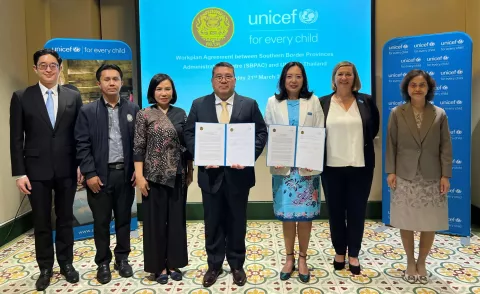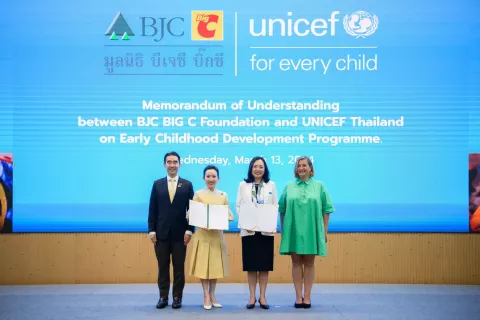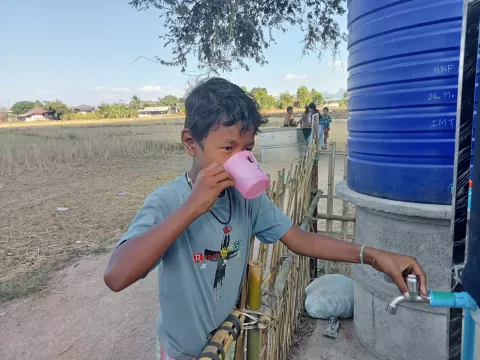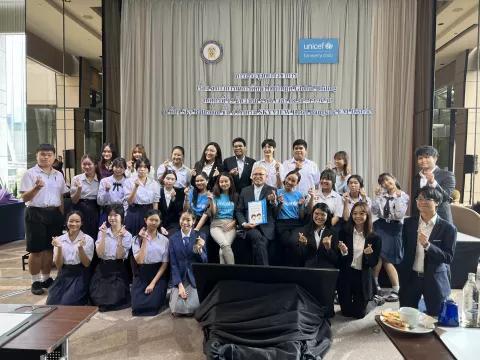UNICEF urges House of Representatives to prioritize investment in children
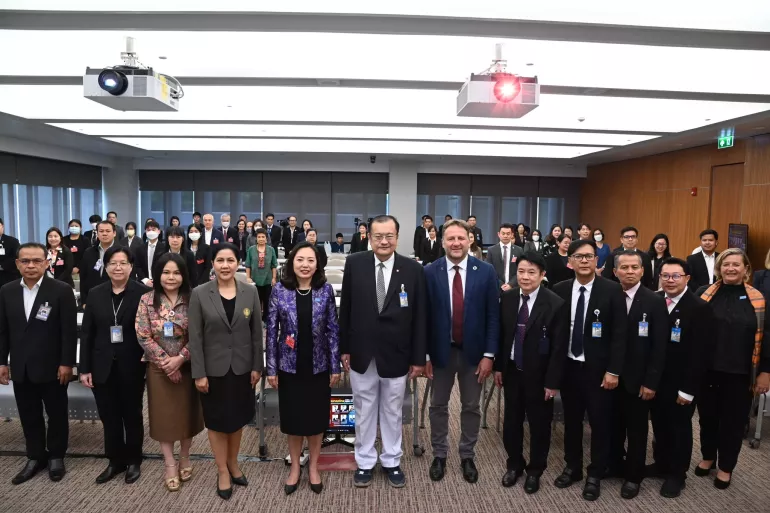
- Available in:
- English
- ไทย
BANGKOK, 1 April 2024 – UNICEF and UNDP met with the Parliamentary Budget Office and the Secretariat of the House of Representatives to make an evidence-based case for increased and improved public investment in children. The discussions were held last Thursday as part of a seminar entitled “Empowering Tomorrow: The House of Representatives’ Role in Improving Investment for Children in Thailand”.
UNICEF presented attendees from across government with the latest data on the situation of women and children in Thailand. This data was drawn primarily from the 2022 Multiple Indicator Cluster Survey (MICS), conducted by the National Statistics Office and UNICEF. It is the largest study of its kind in Thailand, allowing better decision-making drawing on reliable and up-to-date evidence.
The Survey confirms that Thailand has made progress in many areas of child wellbeing, such as universal vaccinations and primary school completion, but that there are also more troubling trends, particularly in education and early childhood development. Early childhood education attendance has dropped in recent years, harming children's ability to start school ready to learn. In addition, 1 in 4 children don’t live with their parents, potentially damaging their development at this crucial early stage.
Informed by this evidence, the discussion focused on ways in which public investment can be maximized and targeted where it will be most effective in transforming children's lives and helping them realize their full potential. The panelists participating in the discussion included members of parliament from standing committees, UNICEF experts, and a member of UNICEF’s Young People Advisory Board.
“Parliament, especially the House of Representatives, plays a crucial role in ensuring children's needs are adequately met through active engagement in the budget process,” said Kyungsun Kim, UNICEF's Representative for Thailand. “As representatives of the people, entrusted with the task of shaping the future of the nation, you can make an enormous difference in the years and decades ahead.”
UNICEF made recommendations for ways in which effective budget management and resource allocation could be used to uphold child rights in critical areas including education, health, and child protection. It also presented evidence showing that countries that prioritize investments in future human capital tend to achieve greater long-term economic growth. According to the World Bank's Human Capital Index, a child born in Thailand today is projected to attain only 61 per cent of their productivity potential by the age of 18. If Thailand invests strategically in children and young people, it has the opportunity to unlock that remaining 39 per cent of lost potential.
"A key role for parliamentarians pertains to the budget process: reviewing, approving and monitoring the expenditures made by Government,” said Renaud Meyer, Resident Representative, UNDP Thailand. “The dialogue organized today by the Parliament Budget Office with UNICEF and UNDP aims to on analyze how the budget addresses the challenges Thai children face, especially in light of the results of the MICS. The UN has developed several tools that can support parliamentarians exercise their role, from gender-based budgeting to climate tagging, ensuring a strong alignment between the country’s development priorities, including the Sustainable Development Goals, and the national budget.”
"Investing in protecting child rights isn’t just the right thing to do morally – it’s also the smart thing to do economically," added Kim. "We’re all aware of the demographic challenges Thailand faces. A low birth rate coupled with an ageing population is perhaps the greatest threat to the nation’s ambitions for future economic development. Investing in education, healthcare, and social protection will not only encourage more people to have children, but will give those children the right start in life to contribute fully to Thailand’s future."
Media contacts
About UNICEF
UNICEF promotes the rights and wellbeing of every child, in everything we do. Together with our partners, we work in 190 countries and territories to translate that commitment into practical action, focusing special effort on reaching the most vulnerable and excluded children, to the benefit of all children, everywhere.
For more information about UNICEF and its work for children, visit www.unicef.org/thailand.
For general inquiries, please contact: thailandao@unicef.org.

